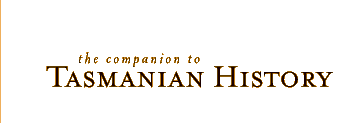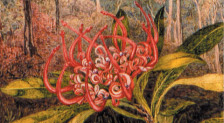 |
 |
|
Communist Party The Communist Party (CPA), Tasmanian branch, was formed in the late 1920s. CPA members campaigned for civil rights, organised the unemployed and opposed Hitlerism in the 1930s. In the 1940s the Soviet Union's role in destroying Hitler's war machine assisted a substantial but short-lived increase in CPA membership. Work to build youth and union organisations, and support for the successful national forty-hour week campaign, were significant. The Cold War brought big membership losses. Those who retained membership continued working, with other people, for peace, democratic rights and better living conditions. Campaigns against Menzies' early 1950s attempt to ban the Communist Party won new and committed activists and members. Grass roots level campaigning on prices, civil rights, jobs and other issues, including campaigns in important workplaces, won support. A Tasmanian communist record parliamentary vote of 2003 in the Denison electorate in 1955 reflected this support. In 1956 invasion of Hungary by the Soviet Army initiated decline. There was, however, one strong municipal vote (in Glenorchy) and continued acceptance of local publications. Members played significant roles in various people's movements including in developing a progressive women's movement in the late 1950s and 1960s. In 1969 the majority of Tasmanian members supported the CPA's condemnation of the Soviet invasion of Czechoslovakia. In the early 1970s, after the pro-Soviet group left the Party, Tasmanian membership increased. Members' involvement in community, Aboriginal rights, environment, student and union movements marked this period. But by 1990, when a national decision to disband was taken, numbers were few. Max Bound |
Copyright 2006, Centre for Tasmanian Historical Studies |